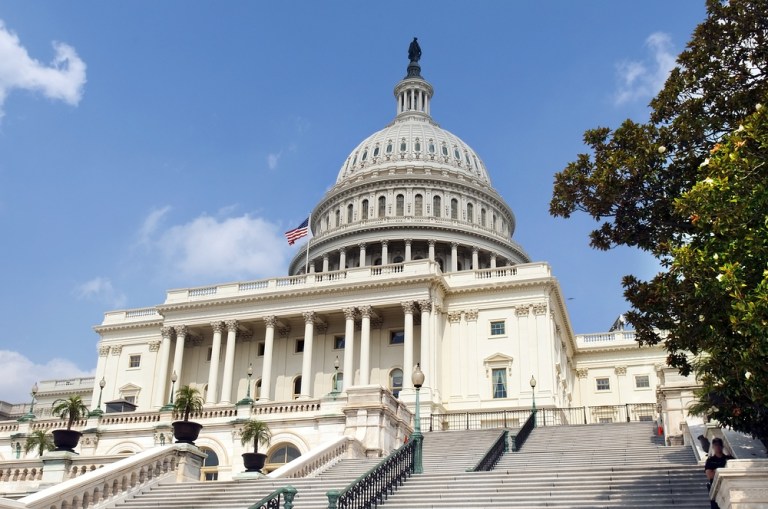House Hearing Signals Fireworks On Big Tech Antitrust Issues

FTC. AGs. Antitrust. And now, a new round of antitrust hearings on Capitol Hill. The Fall may bring fireworks for Big Tech players like Google and Facebook. We preview who’s who – and what they may focus on – at this week’s subcommittee hearing on competition, data and privacy.
For Big Tech, expect fireworks for fall, or a September to remember.
This Thursday (Sept. 12), the House Judiciary Antitrust Subcommittee will hold a hearing on issues top of mind in the digital realm — touching on how data and privacy affect competition online, and specifically, for online marketplaces.
The witness list is varied and international in scope. Before the day is through, and as detailed by Bloomberg, the panel will have heard from: Australian Competition and Consumer Commission Chairman Rod Sims; former Council of Economic Advisers Chairman Jason Furman, who now is a professor at the Harvard Kennedy School; Roslyn Layton, visiting scholar at the American Enterprise Institute; and Federal Trade Commission (FTC) Commissioner Rohit Chopra.
This is the third hearing in a series focused on larger tech firms and economic power that has been held by Rep. David Cicilline of Rhode Island, who serves as subcommittee chairman.
Thus far, the other hearings and testimony have focused on the impact that marquee names, such as Google and Facebook, have had on the media industry.
The second hearing focused on innovation and competitive impact on the tech space, and panelists included executives from Apple, Amazon and Google.
This time around, and at least thus far, the Thursday hearing does not feature appearances from company executives. But the hearings, ongoing as they are, take on new significance against the backdrop where regulatory scrutiny of tech firms — especially larger ones — is on an upswing.
In recent headlines, the Justice Department has said that it is looking into Google’s digital advertising and search activities and examining whether the company may have breached antitrust laws. As has been reported, more than 30 state attorneys general are looking at the company through a bipartisan effort that is being spearheaded by Texas, and the official probe could be announced as early as today (Monday, Sept. 9).
It’s too early to tell, but there is at least some speculation that the company could be mandated to change the way it categorizes and presents search results, and billions of dollars in fines may be in the offing, as well as a demand from regulators that the company break itself up.
As for Facebook, antitrust probes also are afoot, as reported late last week in The Wall Street Journal, where New York Attorney General Letitia James confirmed to that financial publication that her office is organizing what is being billed as a “bipartisan, multistate antitrust probe” into the possibility of whether Facebook “has stifled competition and put users at risk,” as she said in a statement.
“We will use every investigative tool at our disposal to determine whether Facebook’s actions may have endangered consumer data, reduced the quality of consumers’ choices, or increased the price of advertising,” she said.
At this writing (Sunday, Sept. 8), the AGs focused on Facebook include Colorado, Florida, Nebraska, North Carolina, Tennessee, Florida, Iowa and the District of Columbia.
The Hearing
Handicapping what may or may not come out of the hearing is always a bit of speculative parlor game. But a look at some of the positions held in the past by the slate of witnesses point toward what may be under discussion. At this writing, testimony is not yet available.
In Australia, for example, new proposals debuted this past summer from the country’s competition and consumer commission (where witness Sims hails from) that suggest that a new regulator be in place, named the Digital Platforms Branch, which would be charged with examining algorithms and whether Google and Facebook have engaged in antitrust behavior. Operators of digital platforms, according to other recommendations, would also be required to adhere to codes of conduct, and to make pricing a bit more transparent.
And in reference to some of the issues that may be touched on that are germane to competition in general via witness Furman, remarks from a hearing last year at the FTC show that, in his words, “concentration has increased for good reasons and for bad reasons. In some sectors, the balance of these is more ambiguous. Take the tech sector: You have seen a lot of innovation, but you also have platforms with network effects that lend themselves to scale.”
“That might imply that it is efficient to have a single producer at scale,” he said. “It is also efficient to have a single municipal water company, but that does not mean we would want to let it go off and charge whatever it wanted to charge. We certainly would not want to regulate technology the same way we regulate municipal water.”
The FTC’s Chopra, for his part, has been critical of business practices from Google and Facebook — and has argued that the latest rounds of fines ($5 billion for Facebook and $170 million for Google’s YouTube for marketing to kids without parental consent) may do little to discourage corporate behavior. As he told NPR last week, with focus on the Google fine: “The penalty is actually less than what they earned from illegally spying on kids. So, I worry that’s not a penalty. That’s an incentive.”
Things will, of course, come to a head, of sorts, on the Hill Thursday. And for Big Tech, it’s simply a matter of whether the fireworks will be firecrackers, cherry bombs, or the kind that light up the sky: deafening and dangerous.